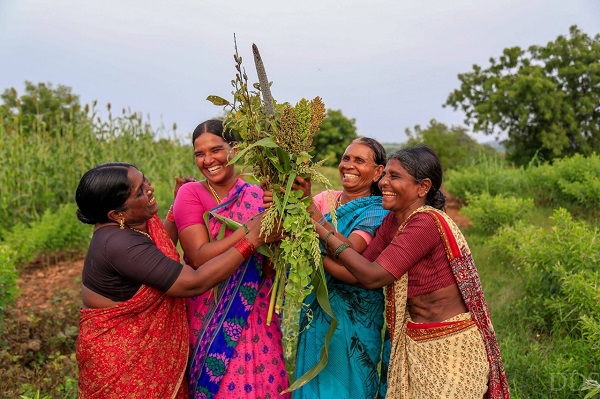First published on 06/10/2019, and last updated on 06/30/2019
Article inspired from the existing article of the UNDP
The ICCA Consortium proudly congratulates the five organisations and ICCAs (all ICCA Consortium Members or close partners) which recently won the 2019 Equator Prize! This prestigious award, organized by the United Nations Development Programme’s Equator Initiative, recognizes 22 local and indigenous communities from across the world. The recipients lead outstanding community efforts and innovative, nature-based solutions for tackling climate change and challenges relating to the environment and poverty.
- Centre Régional de Recherche et d’Education pour un Développement Intégré (CREDI-ONG), Benin, Member of the ICCA Consortium
Putting youth at the center of efforts to mitigate climate change and promote community resilience, CREDI-ONG has created an agroecological farm and a 67,000-hectare Community Natural Park to enable 150,000 people to live in harmony with nature in South Benin, while providing considerable climate mitigation benefits.
- Deccan Development Society, India, Member of the ICCA Consortium
In the Zaheerabad region of India, the Deccan Development Society promotes women-led regenerative agriculture and community-seed banks to empower Dalit and tribal women, promote sustainable land use, and achieve food security.
- The Yaeda Valley Project, Tanzania working closely with the ICCA Consortium Member the Ujamaa Community Resource Team
In the Yaeda Valley of Tanzania, the Hadzabe, a 10,000-year-old hunter-gatherer tribe has safeguarded over 20,000 hectares of territory through a historic land tenure campaign coupled with an innovative carbon offset scheme, community monitoring, and inclusive governance.
- Hui Mālama o Moʻomomi on Molokaʻi, and Hui Makaʻāinana o Makana on Kaua’I, from Hawai’i, working closely with the ICCA Consortium Member Kuaʻāina Ulu ʻAuamo (KUA).
Hui Makaʻāinana o Makana: This native Hawaiian grassroots initiative has woven together traditional, place-based knowledge and policy advocacy to sustainably manage their nearshore fisheries, resulting in the official designation of the first community co-managed fishery in the state of Hawaii.
Hui Mālama o Moʻomomi: Hui Mālama o Moʻomomi, a native Hawaiian grassroots initiative on Molokai Island, uses traditional ecological management practices such as the art of kilo and pono fishing to sustainably manage their nearshore fisheries in the face of climate change for generations to come.
Credits: Deccan Development Society
